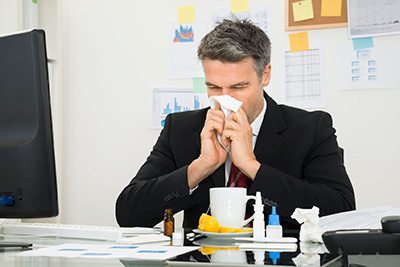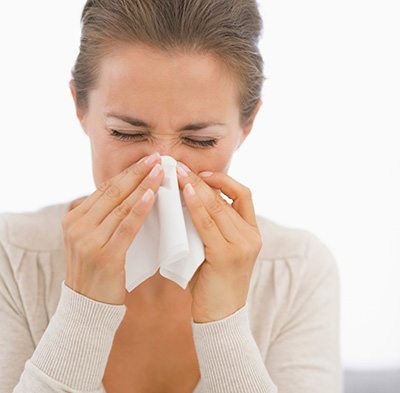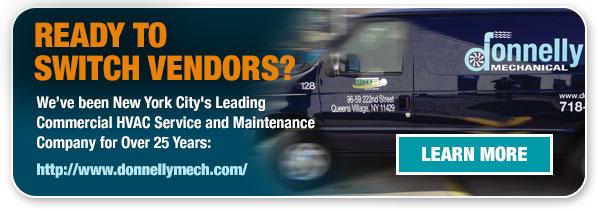Your HVAC system is the most important part of ensuring your building has an appropriate climate. Assuming the exterior envelope of your structure is sound, the HVAC system itself becomes the most important line of defense for both regulating temperature and protecting tenants from exterior pollutants. Every aspect of your system works together to ensure indoor air quality.
 This is especially important when allergy season rolls around. Millions of people all over the United States struggle with allergies – and those symptoms can significantly impede their ability to concentrate and perform their best at work. Yet, commercial buildings are not necessarily a haven against the pollution outdoors. In fact, indoor environments can be far worse!
This is especially important when allergy season rolls around. Millions of people all over the United States struggle with allergies – and those symptoms can significantly impede their ability to concentrate and perform their best at work. Yet, commercial buildings are not necessarily a haven against the pollution outdoors. In fact, indoor environments can be far worse!
It’s true: Pollution levels in indoor air can be up to five times higher than in outdoor air. New York City may have a shorter allergy season than many warmer areas, but allergens are still a severe health concern. Common pollutants including mold, dust mites, insect droppings, and pollen can enter a building and aggravate symptoms. These airborne irritants can reduce overall ventilation while causing allergic reactions throughout a building.
What’s to be done? Proactive maintenance is essential to cleaning the air.
HVAC Systems Can Be Havens for Pollution – But They Don’t Have to Be
Taking extra maintenance precaution to prevent spring allergy flare-ups is good business: It can enhance the performance of commercial tenants, helping them achieve their goals with minimal distress. A modern commercial HVAC system offers many opportunities to raise environmental standards by being attentive to specific components and challenges.`
 Filter Optimization is Easy and Effective
Filter Optimization is Easy and Effective
All filters, regardless of type, should be regularly replaced to enhance air quality. Low-quality filters, such as the standard flat panel filters on furnaces, offer the least protection against indoor pollution. Whenever possible, high-efficiency HEPA filters should be used instead. These have a MERV rating of up to 20 and are appropriate for large commercial structures. Generally, filters should be replaced every two months for the best results.
Regular Maintenance Makes the Biggest Difference
Regular maintenance of your HVAC system allows it to operate at maximum effectiveness all throughout the year. This is critical, because it is not always obvious when the system is starting to lose efficiency. Small maintenance issues can mount and turn into major problems that require costly replacement. A routine maintenance plan is the best way to prevent and resolve air quality issues.
Don’t Forget to Monitor Your Air Quality
Regular air quality measurement can help you head off the most serious systemic problems. If “allergy season” seems to be longer than usual within your building, there could be other explanations: For example, the proliferation of mold or vermin. As severe as these issues are, they can still go undetected in the absence of appropriate testing. Acting fast helps to reduce possible business disruption.
Spring allergies are a nuisance, but they don’t have to be a crisis. Start your maintenance today for cleaner air tomorrow! To learn more, just contact Donnelly Mechanical.
